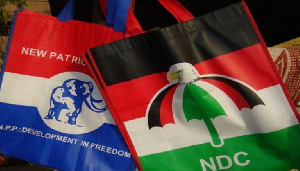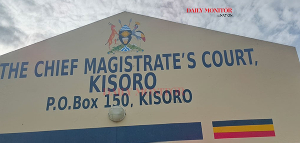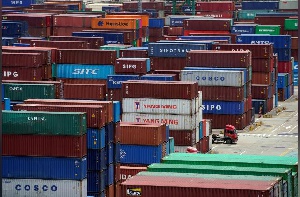Kwasi Gyan-Apenteng
Vice President John Mahama last Saturday told journalists to mend their corrupt ways. Most people would agree with him. Indeed, that particular riff is guaranteed to bring a knowing smile to the collective face of the Ghanaian public: yes, journalists are corrupt troublemakers. Indeed, Mr Ransford Tetteh, the President of the Ghana Journalists Association, like all previous presidents of the Association, has accepted that there is corruption in the practice and called on journalists to change their behaviour. Easier said than done, you would say, and rightly too. All journalists are aware of the situation but the majority of them treat this as so-so talk, to borrow from street lingo.
Media corruption is not only a Ghana problem. Two weeks ago, the Media Foundation for West Africa, an NGO that deals with media practice and freedom of speech issues in our sub-region, organised yet another workshop on this and ancillary themes. Participants were treated to the usual mixture of lectures and group work, which would at the least remind them of some of the precepts that were fed them with their mother’s milk, professionally speaking. If you are experienced in these matters, you quickly recognise the nods and winks at these seminars as signs of amused inner belief that nothing much has changed, or will change. How do most journalists see this issue? It would take more than seminars and vice-presidential homilies to bring change.
At the heart of the matter is this deal: getting something in return for something is the age-old basis for negotiating through the highs and troughs of life. Journalism and journalists are not different from other mortals in that respect. The labourer should be worth his and her wages. So far, so good. It is also true that in life people are willing to pay a bit more for things that have value but not a price, such as publicity or freedom. In the ideal world, the journalist’s pay must be sufficient as a reward for his or her work. But people want what the media can provide but which has no price tag; so they give that little extra to motivate the possessor of that value.
This gave rise to the idea of newsmakers giving “a little” to newsmen and women “in solidarity”. This, I understand, is the origin of the term “Soli”, or lately, “brown envelopes” and its more sinister name, “the black bag”. Whatever its name, the old timers say it started as a harmless something on the side; it was not demanded, and never used as a quid pro quo; In truth, by any name, it was not good for the profession or for society and has been frowned upon from the beginning. It is important for us to disabuse our minds of the thinking that soli used to be some harmless thing, but has only lately gone out of hand. This is pure hogwash.
I remember an early morning emergency visit by a friend from Ghana News Agency whose life had turned upside down because of the small matter of soli he received from a chief. GNA does not produce a newspaper so my friend had no way of ensuring that the soli story would appear anywhere to appease the irate chief who had laid siege to his home and office. Most people would have let the matter die if the story they had “paid for” did not appear after some time, written off as a bad investment, but not some people, our irate chief included. In that instance, a rescue operation was mounted and a rather dour story duly appeared in a newspaper, and since my harassed friend did not re-appear, I assumed that the Chief, seeing his name in the Mirror, was happy.
That is the problem with soli. It corrupts givers and takers alike in their appreciation of the values that determine what is fit to print or broadcast. It is a serious problem. Many times, a trawl through our newspapers reveals a shocking skew or bias in favour of stories promoting a product or individual at the expense of those of community or even the national interest. We can debate what the national interest is, and who determines it, but we all know when it has been relegated to the background.
Conventional economic wisdom would suppose that the huge number of radio stations and newspapers would create choice and therefore make it easier for newsmakers to get their stories published without paying soli, but the reverse has happened. The rise in the number of newspapers and radio stations has happened at the same time as the growth of the private commercial sector and NGOs, all competing to get their stories and issues out. Now, soli has become formalised and standardised; individual reporters take between 50 and 100 cedis; radio and TV crews take from 500 cedis, depending on the event organiser. Some media people demand transport and lunch as part of the bargain. This means that small or poor community events do not get a look in.
So, we all agree that soli is bad because it is corruption by another name, and the situation is growing desperate. None of us knows how to stop it because none of us knows how to stop corruption in the wider society. Indeed, this is where Mr. Mahama, himself a former journalist, can help. One kind of corruption should not justify another but we know that in a generally corrupt environment it is almost cruel to demand that one profession should be clean. If for no reason at all, journalists also shop in the same market on which the general corruption has a marked impact. But in the specific case of the media, the abysmal pay that some journalists receive, must be seen as a factor. Some newspaper and radio owners are said to see soli in the same way as some restaurateurs regard tips and factor them when setting employees wages.
But we should not limit media corruption to money alone because there are other forms of bribery that are more insidious than the cash variety. Many journalists, aware of the bad pay, reckon that they can get a quick rise through becoming openly partisan in the political sphere. In the febrile NDC-NPP political polarisation, it is not difficult to see how extremism in the media can pay off. Journalism is seen as a mere stepping stone to high political office, and in that case it would not pay to be measured and balanced. Propaganda requires harsh words, shrill noise, and untruths, if need be.
Some people have argued that some kind of licensing of journalists or even journalism would be the answer. Others have suggested a minimum educational qualification for all journalists. I disagree vehemently. Journalism should be open to all, and everyone who claims to be a journalist should be allowed to make the claim. However, the ethical framework has to be clarified and publicised and regulations must be rigorously enforced. The fact that some of the best educated people in the media are committing the most outrageous unethical acts shows that it is not a question of qualifications but of motive.
The Ghana media is going through a historic phase; things will change. This free for all atmosphere is the result of, and response to, the free for all society in which discipline has gone AWOL in all spheres. Politicians, police, lawyers, indeed judges, accountants, and even judges, according to recent opinions, are all said to be on the take. No one, from drivers to land administrators to public officers, takes any notice of rules and regulations. It would be strange if in the midst of this miasma, we had a perfect media. No. The media is a perfect mirror of society.
gapenteng@hotmail.com
This is why people routinely bribe policemen and women
Opinions of Wednesday, 1 September 2010
Columnist: Gyan-Apenteng, Kwasi














